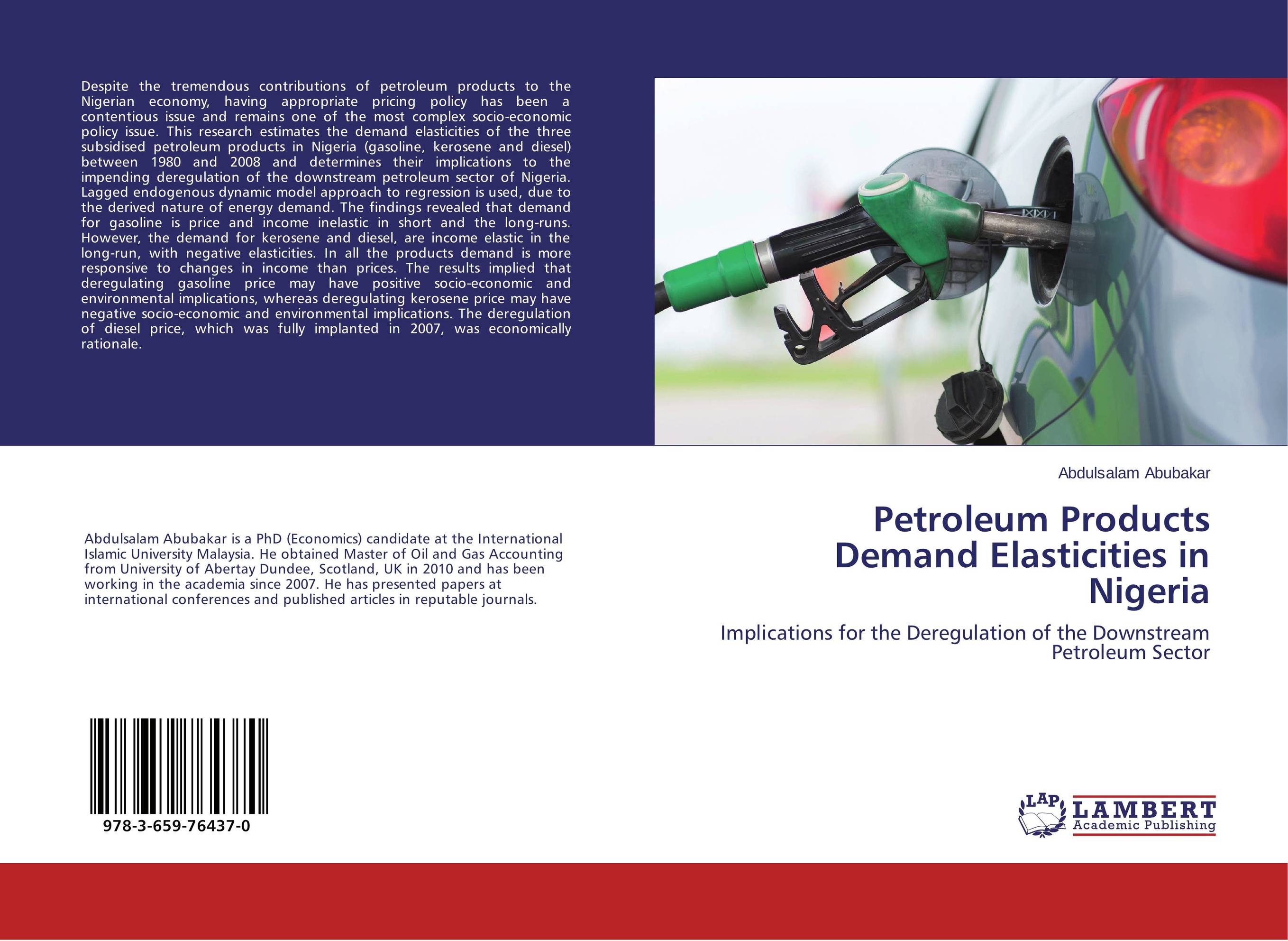| Поиск по каталогу |
|
(строгое соответствие)
|
- Профессиональная
- Научно-популярная
- Художественная
- Публицистика
- Детская
- Искусство
- Хобби, семья, дом
- Спорт
- Путеводители
- Блокноты, тетради, открытки
Petroleum Products Demand Elasticities in Nigeria. Implications for the Deregulation of the Downstream Petroleum Sector

В наличии
| Местонахождение: Алматы | Состояние экземпляра: новый |

Бумажная
версия
версия
Автор: Abdulsalam Abubakar
ISBN: 9783659764370
Год издания: 2015
Формат книги: 60×90/16 (145×215 мм)
Количество страниц: 84
Издательство: LAP LAMBERT Academic Publishing
Цена: 24061 тг
Положить в корзину
| Способы доставки в город Алматы * комплектация (срок до отгрузки) не более 2 рабочих дней |
| Самовывоз из города Алматы (пункты самовывоза партнёра CDEK) |
| Курьерская доставка CDEK из города Москва |
| Доставка Почтой России из города Москва |
Аннотация: Despite the tremendous contributions of petroleum products to the Nigerian economy, having appropriate pricing policy has been a contentious issue and remains one of the most complex socio-economic policy issue. This research estimates the demand elasticities of the three subsidised petroleum products in Nigeria (gasoline, kerosene and diesel) between 1980 and 2008 and determines their implications to the impending deregulation of the downstream petroleum sector of Nigeria. Lagged endogenous dynamic model approach to regression is used, due to the derived nature of energy demand. The findings revealed that demand for gasoline is price and income inelastic in short and the long-runs. However, the demand for kerosene and diesel, are income elastic in the long-run, with negative elasticities. In all the products demand is more responsive to changes in income than prices. The results implied that deregulating gasoline price may have positive socio-economic and environmental implications, whereas deregulating kerosene price may have negative socio-economic and environmental implications. The deregulation of diesel price, which was fully implanted in 2007, was economically rationale.
Ключевые слова: demand, elasticities, Nigeria, Petroleum Products, Petroleum Subsidies



